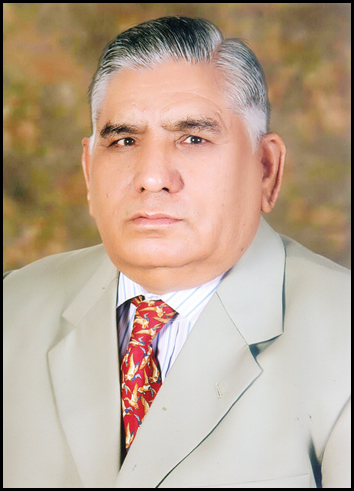

Shaukat Ali Jawaid
While some countries in the world, particularly in the less developed world Pakistan being no exception are faced with population explosion putting tremendous pressure on the limited facilities available i.e. healthcare, education, housing, some countries in the Asia Pacific Region are facing rapidly falling fertility rates which is considered as a threat to humanity.
Countries like New Zealand, Vietnam, and Thailand have reported decreasing fertility rates. The problem is reported to be worse in China, South Korea and Japan. The Asia Pacific leaders in reproductive health speaking at the ASPIRE congress held in Manila Philippines has called upon the tertiary educator sectors and employers to introduce family friendly study programmes and workplace flexibility measures to help arrest the alarming decline in birth rates. In many countries, they reported, fertility rates had decreased below population replacement level which pose serious social and economic challenges with the population age dependency increases. In these countries most women deferred plans for parenthood until they completed their university studies and developed career paths to mid-30s when their reproductive capacity is in decline. For them there was no time and no incentive to consider starting a family.
According to Prof. Neil Johnson fertility rate in New Zealand declined to 1.6 children per women which is below the 2.1 which is considered as the population replacement measure. Similarly in Vietnam total fertility rate has fallen to 1.95 after about two decades of stability whereas in Thailand the fertility rate has declined to 1.08. The ASPIRE Task Force of scientists, doctors, nurses and fertility counsellors is working to highlight the Theme “Fertility Counts”. This falling fertility rates they believe is a threat to future sustainability of economic and societies. They are of the view that these are the challenges which must be embraced by government, industry education sector and the public who should push family friendly policies which should encourage family planning at a younger age offering flexible study programmes, improved child care services, maternity, paternity leave reforms and financial incentives for parenthood. These fertility leaders during meeting at the ASPIRE congress in Manila in May 2024, also pointed out that many couples delay having children because of demand of higher education, career development and financial challenges including housing affordability.
On the other hand in Pakistan millions of children are reported to be out of schools, there is increase in poverty, due to scarce resources the government has failed to improve the sanitation, sewerage facilities, and provision of pure drinking water while the manifold increase in energy, electricity charges has further pushed many families near the poverty line. Some countries in Asia have managed to curtail their fertility rates to some extent through effective interventions which included education, creating awareness about family welfare, promoting the use of contraceptives and other measures, Pakistan has failed to achieve its desired targets. It is likely to increase violent behaviour and increase in crime rates. Economic development is considered as the best contraceptive, hence we need to put all energies in promoting economic development and strengthening our economy. It will also enable us to pursue independent economic and foreign policy.
To achieve all this, political stability in the country is extremely important but our politicians have continuously not only refused to learn from their past mistakes but continue to make the same mistakes again and again. God Almighty has blessed this Nation with tremendous material, human resources. We have the best talent in different fields but the tragedy is that we are unable to retain this talent which is leaving the country. It is high time that we project a positive image of the country, look at the achievements and accomplishments rather than discussing our failures all the time. All those spreading hatred should be discouraged and those who promote love, affection, harmony between different sections of the society should be encouraged.
Let us not complain but do something ourselves. All of us particularly those from the affluent class must look at what they have contributed to the development and progress of this country. We need to bridge the gap between the rich and the poor, ensure schooling for the children, and work on prevention of diseases and provision of primary healthcare which should be a priority with the authorities. Public Private Partnership in both health and education sector can do wonders. Government and our planners must listen to the professionals in various fields rather than depending on bureaucracy all the time.
Even within the bureaucracy there are some highly intelligent competent people and if the policy of merit is adopted for all selection and promotions, the change will be visible within no time. Let us uphold merit and practice professional ethics, be honest with ourselves and to the country, care for the children and elderly, provide ample opportunities to the women for career development and academic promotions. The developed nations have progressed by taking care of all these and we need to follow this path which will lead us to consolidated progress and development. The result will be a progressive, democratic social welfare state which was envisaged by the Founders of Pakistan.



